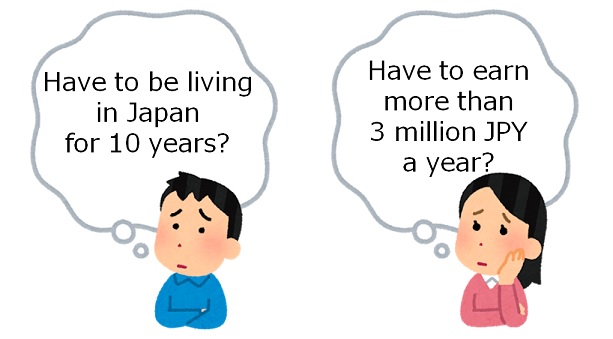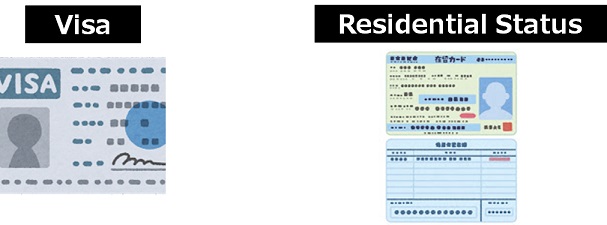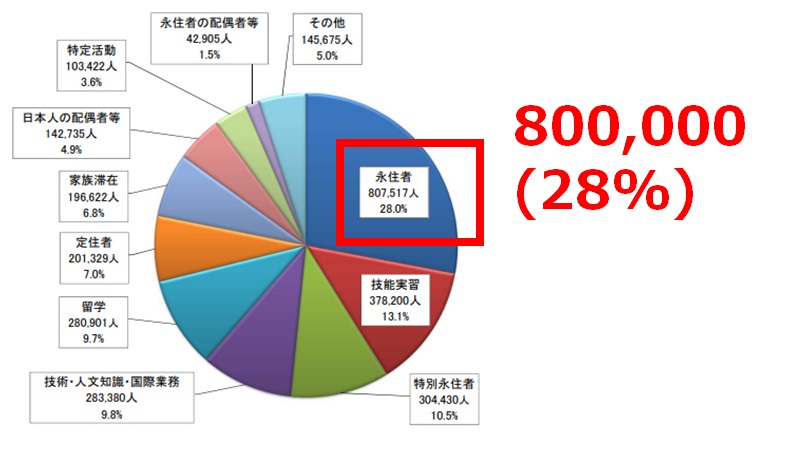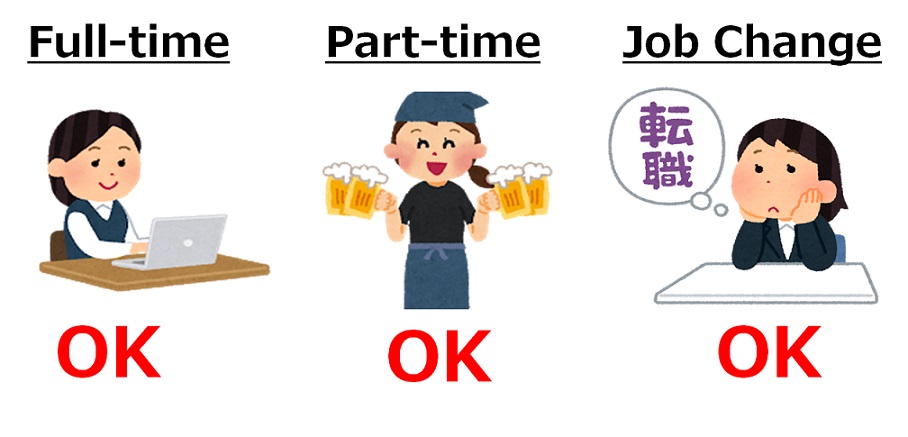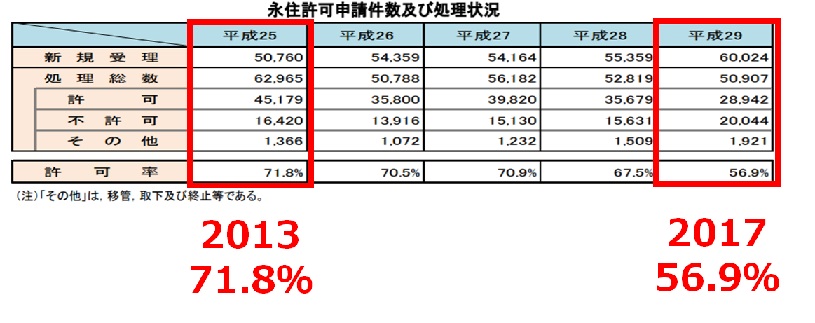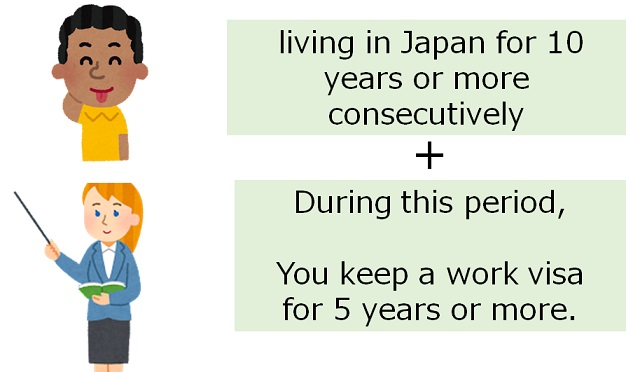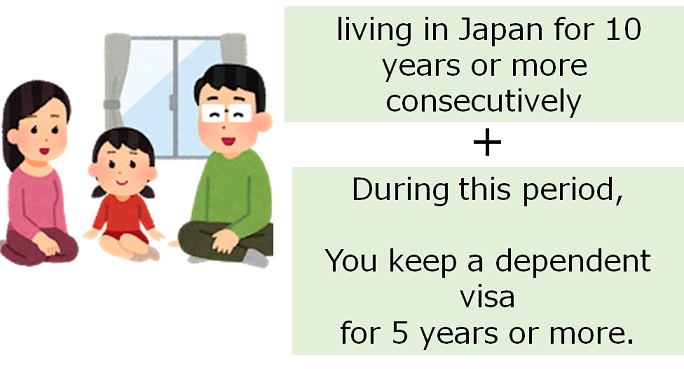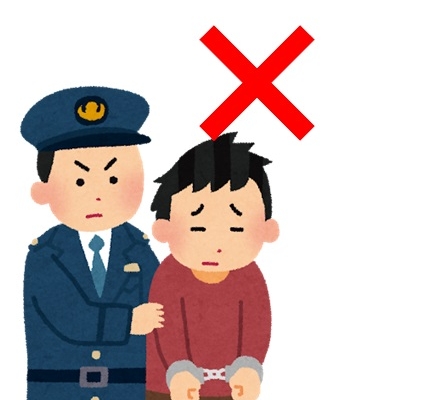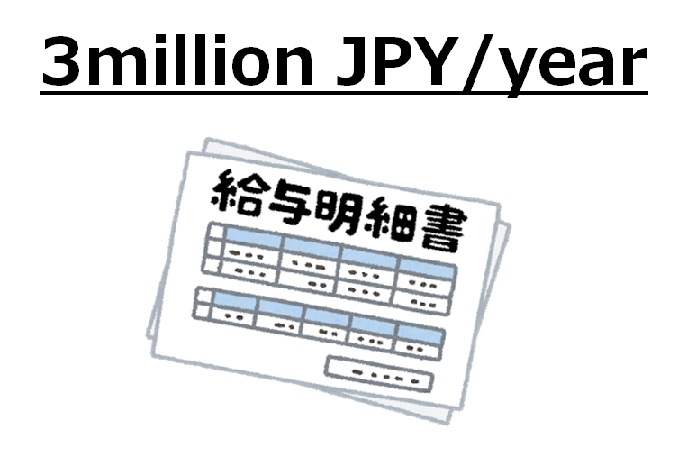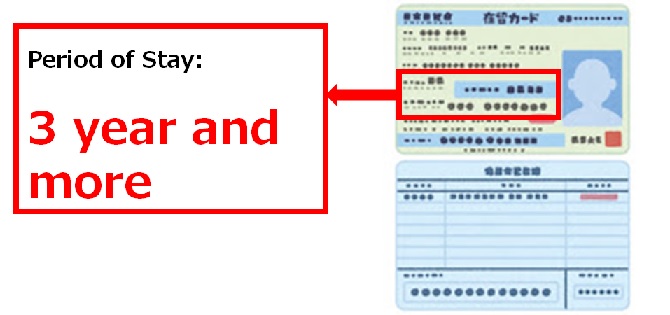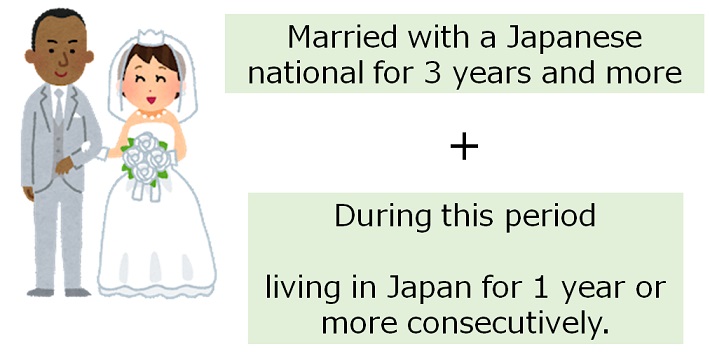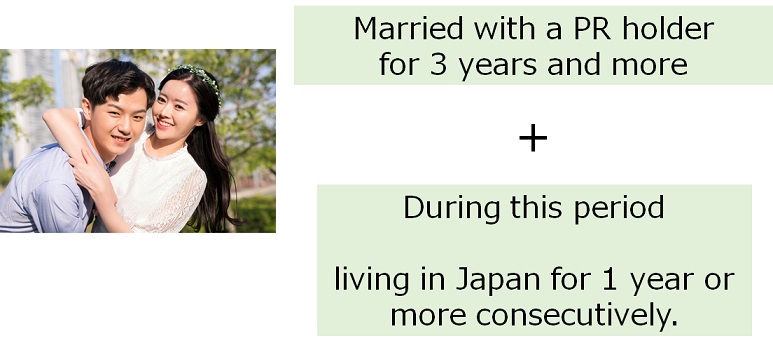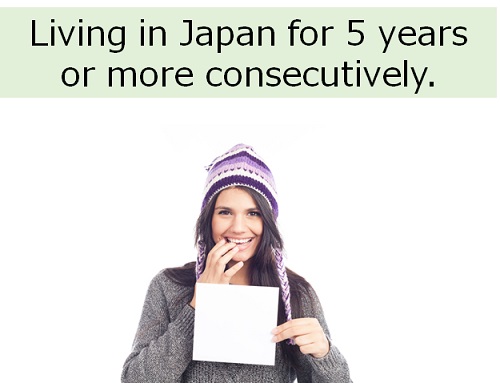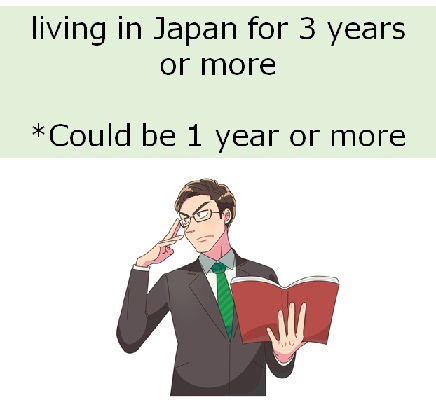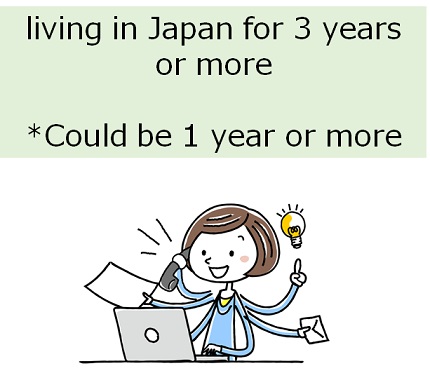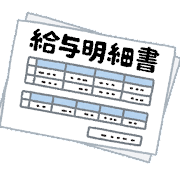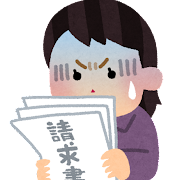BeginnerŌĆÖs Guide to Apply for Permanent Resident Visa in Japan
October 21 2021 Updated

This page collects the basic information for those who are considering applying for the residential status of Permanent Resident (PR) in Japan.
ńø«µ¼Ī
- 1 What is the residential status of Permanent Resident?
- 2 How many foreigners with the PR visa are living in Japan?
- 3 No limitation on activities
- 4 How long can I stay?
- 5 What are the benefits of PR?
- 6 Only 50 ŌĆō 60% of the PR visa applications are approved!?
- 7 What is the difference between “naturalization” and “permanent residency”?
- 8 Key requirements for the PR approval
- 9 Special cases when you have been in Japan for less than 10 consecutive years
- 10 Standard processing time
- 11 The application becomes more challenging in the following cases!
- 12 Service Fees
- 13 Related Articles
What is the residential status of Permanent Resident?
To live in Japan permanently, you need to apply for the residential status/visa of Permanent Resident at the Immigration Services Agency of Japan and be granted permission.
*Strictly speaking, a ŌĆ£residential statusŌĆØ and ŌĆ£visaŌĆØ are different in Japan, but please understand that this article uses them interchangeably for convenience.
How many foreigners with the PR visa are living in Japan?
As of 2020, about 780,000 foreigners live in Japan as their permanent home.
Compared to other residential statuses, Permanent Residents account for the largest portion of the foreign nationals living in Japan: almost 30% of them live in Japan with the status of Permanent Resident.
No limitation on activities
The residential status of Permanent Resident (PR visa) is different from other work-related residential statuses (work visas) in that there is no restriction regarding the employment in Japan.
You can work as other Japanese people, either part-time or full-time. It is also possible to change jobs.
How long can I stay?
There is no expiration for the residential status of PR.
However, be mindful that the residence card needs to be renewed every seven years.
What are the benefits of PR?
1. Life stability in Japan
You can settle in Japan without worrying about the expiration of the residential status, while maintaining your citizenship status in your mother country.
You do not need to renew your residential status, since it has no expiration date.
2. No limitation on your activities
PR is the residential status that places no limitation on activities in Japan.
You can have a part-time or full-time job like Japanese natives and it is also up to you to change jobs. In addition, even if you lose a job or get divorced, you will not lose the residential status and be able to stay in Japan.
3. Your credibility
Your credibility improves and getting home mortgage loan can be easier.
As a PR, your general credibility will improve in Japanese society, and you can get approval for home mortgage or business loans more easily.
Only 50 ŌĆō 60% of the PR visa applications are approved!?
According to the data published by the Ministry of Justice, the approval rate of the PR visa dropped from 71.8% in 2013 to 56.9% in 2017.
Part of the reason is that the bar has been raised for the PR visa these years, but it is also possible that some cases are not approved because they are missing documents or do not make a sufficient appeal.
The application is categorized into several groups, including the one that requires 10-year residency or others based on special conditions. Since each group asks for different documents, this residential status is more complicated than others.

What is the difference between “naturalization” and “permanent residency”?
Permanent residency allows you to settle down in Japan indefinitely without becoming a Japanese citizen. On the other hand, naturalization is the process in which you become a Japanese national.
PR keeps their foreign-issued passport, but those naturalized will obtain a Japanese passport.
Key requirements for the PR approval
I will break down here the guideline of the PR visa approval provided by the Ministry of Justice (revised on May 31, 2019).
It is important for you to meet the following requirements in order to have your visa application approved.
It is a basic rule that you need to be living in Japan for 10 or more consecutive years in order to apply for the PR visa.
During this period, you also need to have a residential status of work-related or family-related for 5 years or more.
For example, suppose you have been enrolled in Japanese language school for 2 years, in university for 4 years with the residential status of Student, and have been working with the residential status for employment in Engineer/Specialist in Humanities and International Services for 4 years.
Although you have been in Japan for 10 years, you had the work-related residential status for only 4 years, so you do not meet this requirement.
For your reference, the length of 10 years is just a basic rule and there are several cases where a spouse of a Japanese national/Permanent Resident can be eligible after 3 years or more of the marriage or those classified as Highly Skilled Foreign Professionals can be eligible after working for 1 or 3 years.
(I will explain about the special applications in detail later.)
ŌĆ£Good conductŌĆØ means you have no criminal records with prison time or penalty enforced by Japanese laws.
One of the frequently asked questions is what if the applicant paid fine for traffic violation. In traffic violation, a severe offence is issued a ŌĆ£red ticket,ŌĆØ and a minor offence is issued a ŌĆ£blue ticket.ŌĆØ
If you have got a blue ticket for violation such as speeding and paid the fine before the given deadline, you do not have a criminal charge. Yet repeated minor offenses can raise the possibility for your visa application to be denied.
The Immigration Services Agency of Japan is wary of the case in which a PR faces financial difficulty and ends up relying on public assistance.
Thus, you need to have a stable income source for several years after coming to Japan, no matter if you are a businessperson or self-employed, and expect to continue earning your living. For a single person, 3 million JPY per year is an average cost of living, but it varies in accordance with the household size.
You can apply with the household income. If the PR focuses on maintaining the house and the spouse brings in income, there is no problem as long as you show the income source has been and will be stable and sufficient for the whole household.
Taxes here include income tax, property tax, national tax, insurance, and pension.The Agency will examine if you have paid these taxes within the given time period.
Since tax is the duty as a citizen, the Agency takes for granted that everyone pays taxes. What makes a difference thus is if you respect the deadline. In particular, the review puts emphasis on the payment for insurance and pension.
If your company uses the EmployeesŌĆÖ Pension Insurance system to pay for the pension or insurance of you and your family, there is no need to worry. Yet if you are or used to be enrolled in the National Health Insurance or the National Pension that needs to be paid by yourself, you need to be careful.
If you have not paid some premium or missed the deadline, you need to make the missed payment right away, build the record of following the deadline for the latest 2 years at least, and write a letter that reflects on the past negligence and makes a resolution for the future.
The Immigration Services Agency of Japan determines the period of stay from 1, 3, and 5 years, judging from the overall information of the individual applicant. If you already have the longest period of stay with the current residential status, that means the Agency trusts you enough to approve the long stay. This is probably the reason why this item is one of the requirements for the PR application.
On a side note, the longest period of stay should mean 5 years, but the operation rules as of October 2021 determines that 3 years are treated as the longest period of stay for the time being. Thus, if you have the residential status with the period of stay for more than 3 years, you can meet this requirement.
Special cases when you have been in Japan for less than 10 consecutive years
As mentioned above, even if you have not been living in Japan for 10 years continuously, you may be able to apply as special cases.
PR application for Spouse of Japanese National
Being a spouse of a Japanese national does not mean you must have the residential status of ŌĆ£Spouse or Child of Japanese NationalŌĆØ (SCJN).
As long as your marriage is legal, the spouseŌĆÖs residential status can be SCJN, Engineer/Specialist in Humanities/International Services, or Highly Skilled Professional (HSP) and more.
*If you and your spouse live in separate residences after marriage without any legitimate reason, the marriage is not regarded as genuine.
*For the marriage that can be regarded as genuine and has been going on for more than 3 years, even if you lived overseas for the first 2 years and the last 1 year in Japan together, you still meet the requirement.
PR application for Spouse of PR/Special PR
*Being a spouse of a PR or Special PR does not mean you must have the residential status of ŌĆ£Spouse or Child of Permanent ResidentŌĆØ (SCPR). As long as your marriage is legal, the spouseŌĆÖs residential status can be SCPR, Engineer/Specialist in Humanities/International Services, or HSP.
*If you and your spouse live in separate residences after marriage without any legitimate reason, the marriage is not regarded as genuine.
*For the marriage that can be regarded as genuine and has been going on for more than 3 years, even if you lived overseas for the first 2 years and the last 1 year in Japan together, you still meet the requirement.
PR application from the residential status of Long-Term (Teijusha) Resident
*If those who have residential status of long-term (teijusha) wants to be a PR, it is required that you have been living in Japan for 5 years or more consecutively with the residential status.
PR application from the residential status of HSP
Or
Ńā╗You have been living in Japan with the HSP residential status for 1 year or more consecutively and regarded as a ŌĆ£Highly Skilled Foreign ProfessionalŌĆØ that scores 80 points or more in accordance with the MinistryŌĆÖs ordinance for 1 year or more consecutively.
*The basic requirement for this PR application is to be living in Japan for 3 years or more consecutively with the residential status of HSP.
This requirement will be modified, if you live in Japan for 1 year or more consecutively as a Highly Skilled Foreign Professional that scores 80 points in the point-based system determined by the MinistryŌĆÖs ordinance. Instead of 3 years, 1 year is enough to apply for the PR status.
PR application of Highly Skilled Foreign Professionals who do not have the residential status of HSP
Even if you do not have the residential status of HSP, you can be eligible for the shortcut PR application once you meet the following requirements.
Or,
Ńā╗You have been living in Japan for 1 year or more consecutively and score 80 points or more in accordance with the MinistryŌĆÖs ordinance, when calculated at the point of 1 year before the application date
*If you score 70 points or more at the time when you apply as well as 3 years before, or 80 points or more at the time when you apply as well as 1 year before, you can submit the application even though you do not have the residential status of HSP.
Standard processing time
The Immigration Services Agency publicly states that the review takes about 4 months, but it usually takes from 4 months to 1 year.
In case you are required to submit additional documents, you should be ready to send them right away during this waiting period.
The application becomes more challenging in the following cases!
The PR application in general becomes harder if you fall into any one of the following categories:
Your annual salary is below 3 million JPY.
You changed jobs within a year of the PR application.
You did not pay taxes within the given period.
You have a series of minor traffic violations.
You stay abroad for 100 days or more in total a year or you leave Japan for 90 days or more consecutively.

Service Fees
Please refer this page for service fees!



